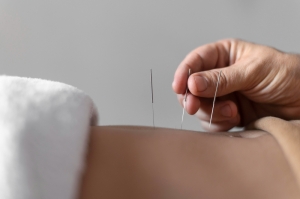Healthcare is one of the most critical sectors, where maintaining high professional standards directly impacts patient safety and the overall quality of care. For doctors and other healthcare professionals in the UK, two essential processes—appraisal and revalidation play a vital role in ensuring accountability, continuous improvement, and trustworthiness in the medical field. While both terms are often mentioned together, many professionals find them confusing or overlapping. This comprehensive guide will explain the concepts, differences, and importance of these processes and provide practical insights for healthcare professionals preparing for them.
What is Appraisal in Healthcare?
Appraisal is an annual process where a healthcare professional meets with a trained appraiser to reflect on their clinical practice, achievements, challenges, and areas for improvement. The appraisal discussion is confidential and designed to encourage self-assessment while aligning personal development with organizational and regulatory requirements.
Key objectives of appraisal include:
- Supporting doctors in their ongoing professional development.
- Identifying training and learning needs.
- Highlighting achievements and areas of excellence.
- Ensuring the professional is meeting the standards outlined by the General Medical Council (GMC).
Appraisals are not examinations but rather supportive conversations. They focus on learning, improvement, and career progression, making them essential for professional growth and patient safety.
What is Revalidation in Healthcare?
Revalidation is a formal process introduced by the GMC to confirm that licensed doctors are up to date and fit to practice. It occurs every five years and is based on the cumulative evidence gathered through annual appraisals.
During revalidation, a doctor's responsible officer (RO) reviews the appraisal documentation, feedback, and supporting evidence to make a recommendation to the GMC. Once approved, the doctor retains their license to practice medicine in the UK.
The goals of revalidation include:
- Maintaining public trust in the medical profession.
- Ensuring doctors consistently meet professional standards.
- Providing assurance to patients and employers about a doctor's competence.
- Encouraging continuous professional development (CPD).
The Link Between Appraisal and Revalidation
While appraisal and revalidation are separate processes, they are closely connected. The annual appraisal provides the building blocks of evidence required for successful revalidation. In other words, without effective appraisals, revalidation would not be possible.
Think of appraisal as the yearly check-in and reflection, and revalidation as the five-yearly assurance that these reflections and improvements have translated into consistently high professional standards.
Why Appraisal and Revalidation Matter for Healthcare Professionals
For many healthcare professionals, especially busy doctors, appraisal and revalidation can sometimes feel like an administrative burden. However, their importance cannot be overstated. They bring several benefits for professionals, patients, and the healthcare system as a whole:
- Promotes Professional Development – Appraisals encourage self-reflection and help professionals identify their strengths and learning needs.
- Supports Patient Safety – Regular evaluation ensures doctors remain competent and aligned with current medical practices.
- Builds Public Trust – Revalidation reassures patients and the public that licensed doctors are safe and fit to practice.
- Improves Healthcare Quality – By encouraging CPD and learning, both processes contribute to higher standards of care.
- Career Advancement – Appraisal discussions can highlight opportunities for specialization, research, or leadership roles.
Preparing for Appraisal
Preparation is crucial to make the appraisal process meaningful and efficient. Healthcare professionals should collect and organize evidence throughout the year to avoid last-minute stress.
Key Documents and Evidence to Prepare:
- Continuing Professional Development (CPD): Certificates or records of courses, workshops, and training.
- Feedback from Colleagues and Patients: 360-degree feedback reports or patient satisfaction surveys.
- Significant Events: Documentation of incidents, how they were managed, and lessons learned.
- Quality Improvement Activities: Participation in audits, research, or clinical governance activities.
- Complaints or Compliments: Records of formal feedback, along with reflections.
Tips for a Successful Appraisal:
- Start gathering evidence early and update it regularly.
- Reflect honestly on both strengths and areas needing improvement.
- Use the appraisal as a two-way discussion with your appraiser.
- Focus on how your work impacts patient safety and care quality.
Preparing for Revalidation
Since revalidation is based on annual appraisals, preparation is a continuous process. By maintaining high-quality appraisals each year, healthcare professionals naturally build the portfolio required for revalidation.
Key Steps to Ensure Smooth Revalidation:
- Engage with Every Appraisal – Take annual appraisals seriously and document them thoroughly.
- Stay Updated with GMC Guidance – Be aware of the latest requirements and changes in revalidation processes.
- Regularly Review Your Portfolio – Ensure evidence is complete, accurate, and well-documented.
- Work with Your Responsible Officer (RO) – Maintain open communication to address issues early.
- Keep CPD Records Up to Date – Regular learning activities demonstrate commitment to professional growth.
Common Challenges in Appraisal and Revalidation
Despite their benefits, professionals may face challenges while navigating appraisal and revalidation:
- Time Pressure – Busy clinical schedules often make it difficult to prepare evidence.
- Uncertainty About Requirements – Many professionals are unsure about what constitutes valid evidence.
- Stress or Anxiety – The formal nature of revalidation can create pressure.
- Limited Support – In some organizations, access to appraisers or mentors may be restricted.
How to Overcome These Challenges:
- Use digital tools or apps to track CPD and evidence.
- Seek clarity from the GMC or your designated body when unsure.
- Approach the appraisal as a learning opportunity rather than an inspection.
- Collaborate with peers for peer feedback and guidance.
Future of Appraisal and Revalidation
Healthcare is constantly evolving with technological advancements, changing patient needs, and updated regulatory standards. This means appraisal and revalidation are also likely to adapt over time.
Some emerging trends include:
- Digital Appraisal Platforms – Streamlining documentation and evidence gathering.
- Greater Focus on Well-being – Including discussions about workload and mental health in appraisals.
- Patient-Centered Evidence – Increasing emphasis on patient feedback in revalidation.
- International Recognition – Potential for revalidation systems to align globally.
These developments highlight that appraisal and revalidation will remain dynamic, with a focus on supporting healthcare professionals while safeguarding patient trust.
Conclusion
For healthcare professionals, appraisal and revalidation are much more than regulatory requirements—they are essential tools for maintaining high professional standards, enhancing patient safety, and fostering lifelong learning. Appraisal provides annual opportunities for reflection and development, while revalidation ensures that these efforts are consistently maintained and recognized over time.
By preparing thoroughly, engaging openly, and embracing the benefits, healthcare professionals can turn appraisal and revalidation into empowering milestones in their careers. With continuous improvement at the heart of these processes, the medical profession can uphold its responsibility to deliver safe, effective, and compassionate care.





